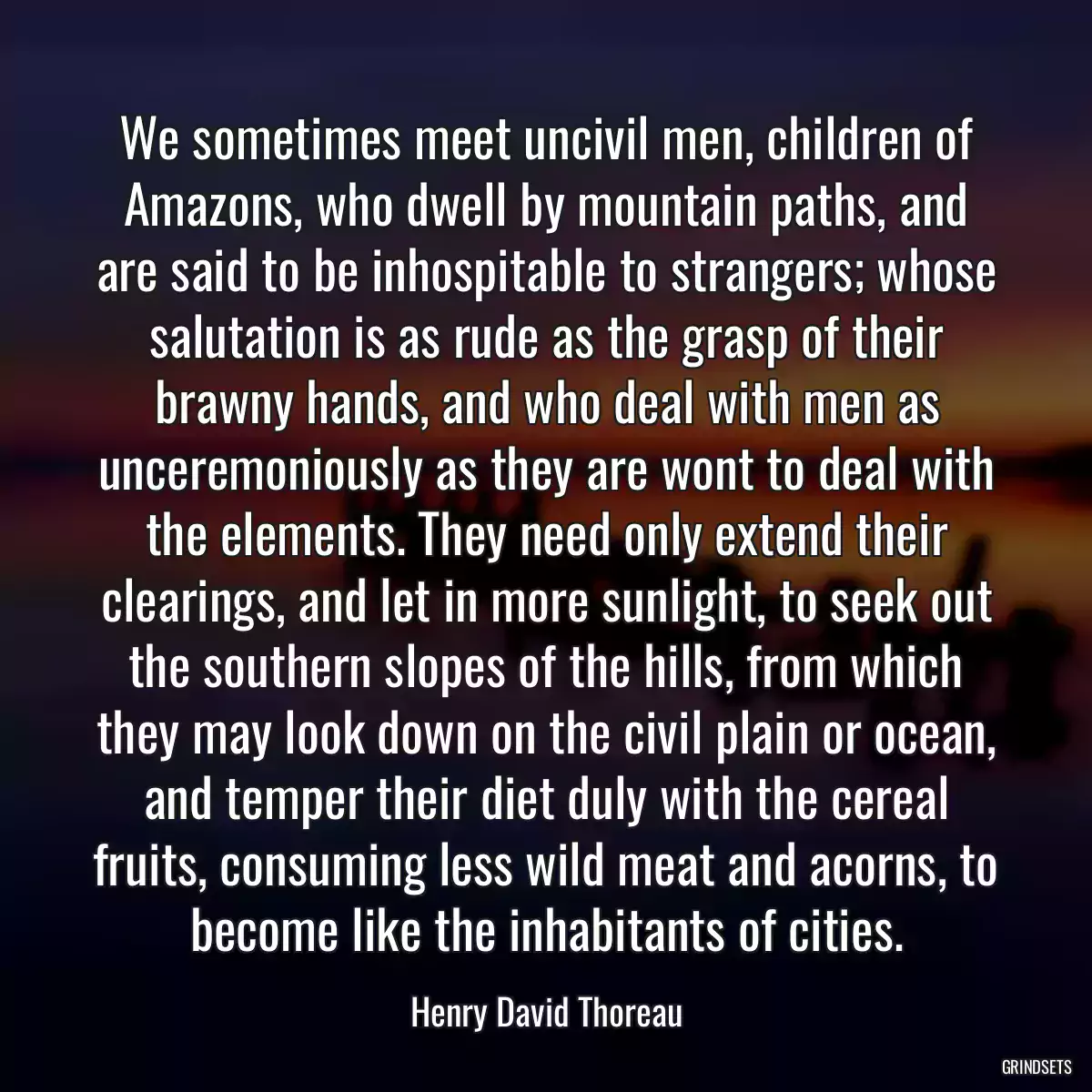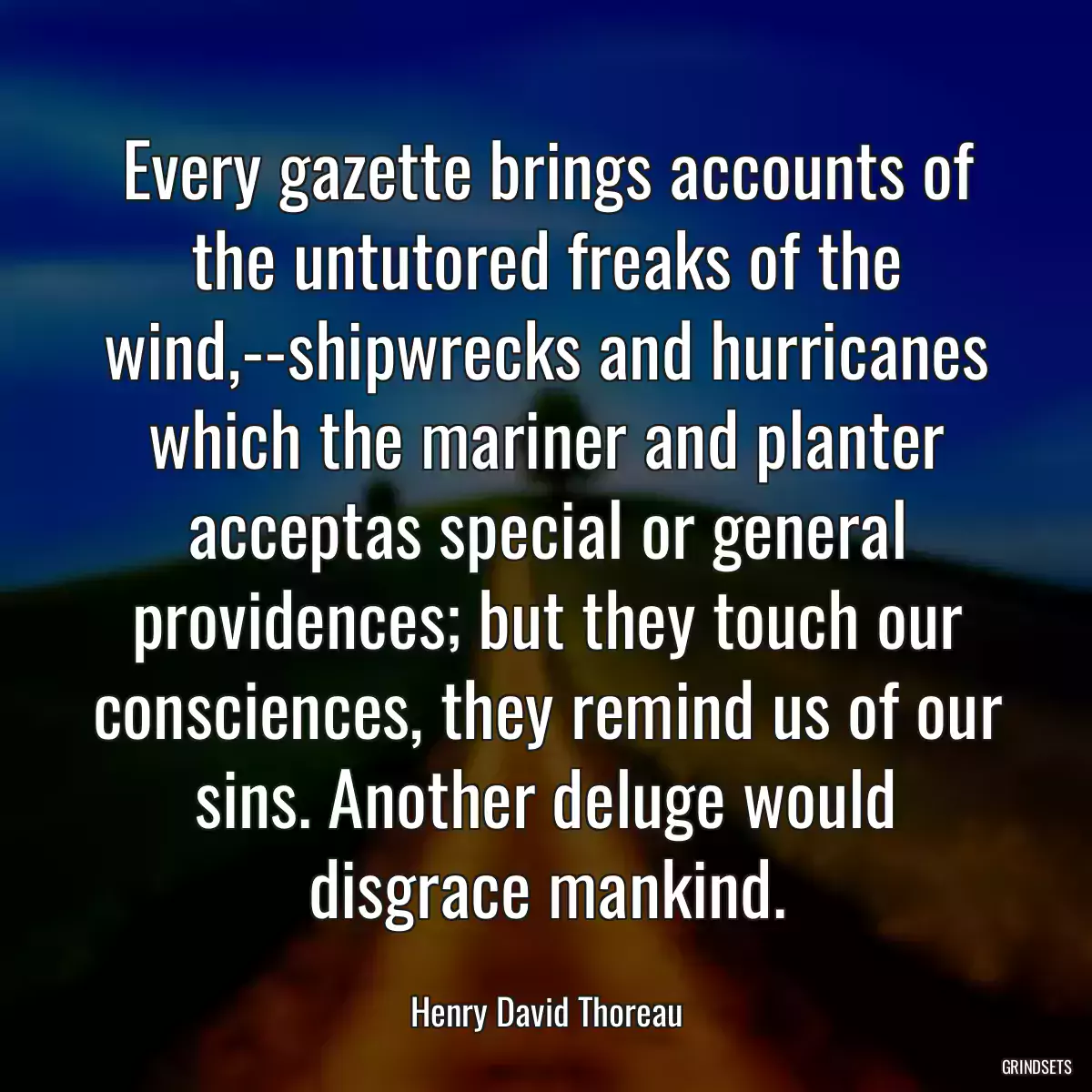
We sometimes meet uncivil men, children of Amazons, who dwell by mountain paths, and are said to be inhospitable to strangers; whose salutation is as rude as the grasp of their brawny hands, and who deal with men as unceremoniously as they are wont to deal with the elements. They need only extend their clearings, and let in more sunlight, to seek out the southern slopes of the hills, from which they may look down on the civil plain or ocean, and temper their diet duly with the cereal fruits, consuming less wild meat and acorns, to become like the inhabitants of cities.

